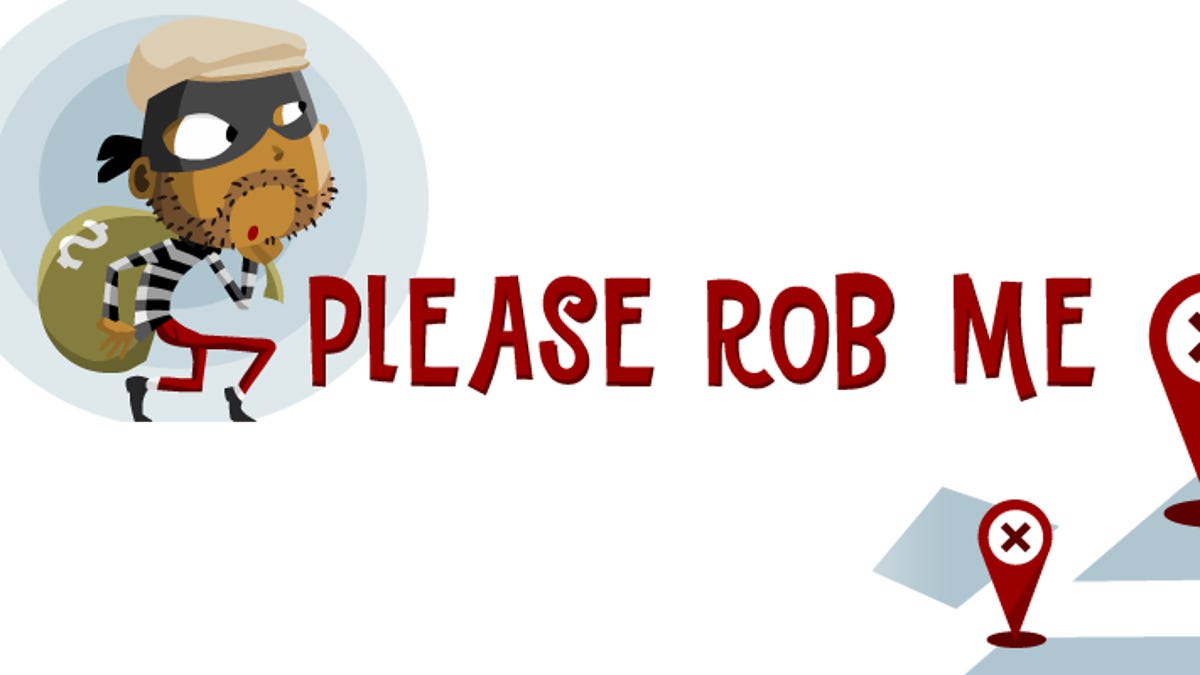The dark side of geo: PleaseRobMe.com
You know all those people who push their Foursquare and Gowalla locations out onto Twitter? Now there's an aggregator for aspiring crooks who want to rob their houses.

More than a social statement than an actual utility for aspiring Colton Harris-Moore* copycats, a new site called Please Rob Me has popped up to expose the potential pratfalls of the geolocation craze: If you're pushing a "check-in" from Gowalla, Brightkite, or Foursquare to a local restaurant out to your public Twitter stream, you're broadcasting that you aren't home. Which could be taken to mean that your home is ripe for burglary.
Please Rob Me consists exclusively of an aggregation of public Twitter messages that have been pushed through fast-growing location-based networking site Foursquare, one of a handful of services that encourages people to share their whereabouts with their friends. You can filter by geographic location, too.
"On one end we're leaving lights on when we're going on a holiday, and on the other we're telling everybody on the internet we're not home," the Please Rob Me site says to explain its rationale. "The goal of this website is to raise some awareness on this issue and have people think about how they use services like Foursquare, Brightkite, Google Buzz, etc."
Many people who use location-based services like Foursquare, Gowalla, and Loopt keep their updates semi-private, opting to share them with a group of friends that's often much more exclusive than, say, a Facebook friends list. But many others have become more and more comfortable sharing some or all of those updates publicly, which seems innocuous if you're checked into a big party with dozens of other people.
Granted, many of the same people don't share any information about where they actually live, or whether they live alone in the first place. But it's still telling. Facebook CEO Mark Zuckerberg likes to talk about how Facebook's gradual transition from exclusive, password-protected social network for college students to ubiquitous database of often public information has rolled out in sync with people's information-sharing comfort levels. A few years ago, mainstream Internet users often didn't want to even use their real names online; now, many are publicly sharing their locations in real time.
There's been a lot of talk these days--particularly with regard to the Google Buzz launch and Facebook's revamped privacy settings--about how much is too much.
*For those who stepped in late, Colton Harris-Moore is a teenage fugitive known for robbing empty vacation homes of the Pacific Northwest--including areas home to many a Microsoft and Amazon millionaire--and, on occasion, filching their fancy cars and private planes. He probably doesn't use Foursquare.

